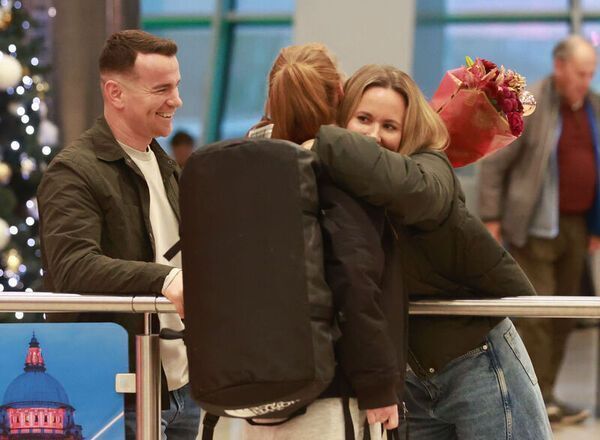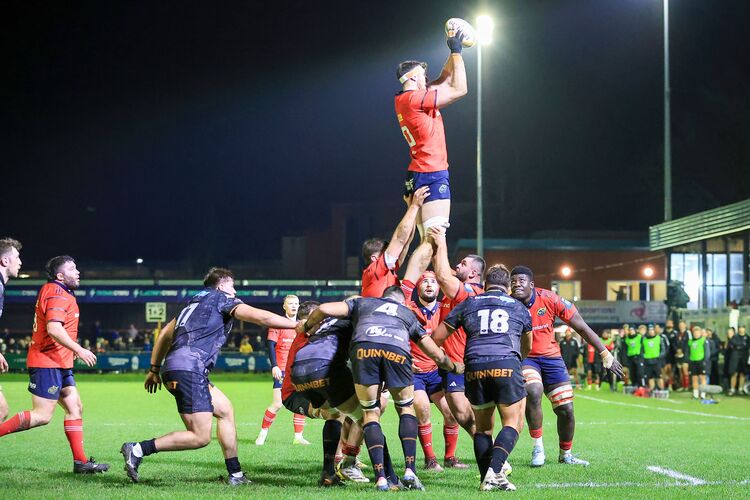Tom Phelan.
The author’s most recent tale in the Echo (“JohnJoe Enacts His Clever Plan”) ended: “JohnJoe wiped the muck and the cow dung off his wellingtons and set about entrapping Annie Hayes in his amorous tentacles.” The rest of the story follows.
By Tom Phelan
On the day my parents, JohnJoe Phelan and Annie Hayes, met at a camogie game, they were not total strangers. Both belonged to the Gaelic League, and at a meeting in the Mountmellick Boys School one evening, Annie had seen JohnJoe gaping at her across the crowded room. She had been casting furtive glances at the good-looking lad since the course had begun. Now she lowered her gaze and hoped he hadn’t seen her blushing.
In the local GAA field some wolfish and sex-starved young men attended every camogie match in the hope a gym slip might flail and give them a glimpse of a girl’s thigh. But JohnJoe wasn’t wolfish, and besides, he was only interested in one particular girl. Even though he was inclined to be shy, he drew on what reserves of daring he possessed and walked away from his friends. Soon he “accidentally” encountered Annie Hayes, who was standing alone on the sidelines watching the game through her round-lensed, metal-framed glasses and holding a notebook and a pencil.
No scribe was present to record their conversation, but being their son I can imagine JohnJoe said something romantic like, “What’s wrong wich ya? Why aren’t ya out on the playing field?”
Annie would have told him that without her glasses she couldn’t see the camogie ball.
“So that’s why you’re secretary of the club?”
“Yes, and I hear you’re a big shot--you’re on the selection committee for the county minor hurling team.”
“I used to be.”
“Oh?”
“Last Monday I proposed Paddy Ruschitzko for the team, but the chairman didn't even look at me. ‘I can’t spell that name,’ he said. Then he shouted, ‘Next! I said I'd spell it for him but he ignored me and called out ‘Next!’ again. I went up to the table and shouted, ‘Is it that you're as thick as a double ditch that you can't spell? Or is it that you're saving a place on the team for your two-ton son who wouldn’t know one end of a hurley from the other?’ Then I went home.”
Annie would have laughed. She would not have known that she had just heard JohnJoe’s method of dealing with people he considered unfair – spray them with the sparking swirls of anger in his brain, and forever after not speak to them because he lacked the tools to rebuild the bridge he had just blown up. He and Annie would be married and have a child before she realized that in confrontational situations her husband behaved like a blind man striking out at a biting dog with his stick, hitting himself on the shins and knees as often as he hit the dog.
When the camogie match ended, JohnJoe invited Annie to go with him to the Rock of Dunamaise on the following Sunday. The rushing of the blood to her face affected the workings of her vocal cords, but she did manage to say she would go if she could borrow a bicycle. She’d let him know after the eight o’clock mass.
A few days later, when Annie saw JohnJoe in the distance in the crowded churchyard, she shook her head, then turned to go home. JohnJoe quick-stepped after her, and when he touched her elbow, she whispered, “People will see us.”
“Could you not get a bike?” he asked.
“No.”
“Then I’ll carry you on the bar of my bike.”
“No. If people see me on the bar of your bike they’ll think we—“
‘We what?’
JohnJoe hoped Annie would say, “courting.” It would establish an understanding between them.
“You know—“
JohnJoe quickly said, “I’ll meet you at the Level Crossing with an extra bike at eleven.”
“But people will see us and talk.”
“When I give you the bike you can head around by the railway bridge, and I'll ride back through the town. I'll be waiting at Carn Bridge.”
“But if we meet someone on the way, they'll tell everyone we’re hedging and ditching.”
This was in an era of church- and society-enforced chastity, when the only place a young couple might be alone was in the countryside under a hedge or in a dry ditch. The parish priest had recently declared from the pulpit, “There's too much hedging and ditching in this parish, so I'll be out with me blackthorn stick every night from now on.”
JohnJoe reassured Annie of his pure intentions. “Sure, someone would have to see us in a hedge or a ditch first. We'll be on our bikes.”
Annie, realizing she could trust JohnJoe, finally agreed to go.
One half-mile north of the railway crossing, Annie’s home in the townland of Derrycloney was two miles from JohnJoe’s. There, in a three-roomed, thatched cottage she lived with her six siblings and her parents, Martha and Tom. Tom Hayes was a cantankerous fellow who drank most of his wages and who demanded his wife boil a brown egg for his breakfast each day. Only a brown egg would suit. What he didn’t know was that Martha often served him a white egg that she’d boiled in left-over tea.
Most days when Tom came home from a day of turning barley in Codd’s storage building, he was either nasty in his drunkenness or nasty in his craving for alcohol. Once, after drinking bad poteen, he staggered into the house wielding a pitchfork. Sixteen-year-old Annie tackled him, knocked him to the floor, and twisted the putative weapon out of his hands.
Despite the poverty of the Hayes cottage, Annie attended the girls’ secondary school in Mountmellick. Perhaps some nun in the National School had recommended her and she’d been taken on as a charity case. But she only spent two years in the groves of academe.
“Here comes the scholar,” Tom Hayes would jeer. “The scholar reads books while her father kills himself working….Silence in the house when the scholar walks in!” Defeated by her father’s constant belittling, Annie left school.
In June 1936, ten months after their meeting at the camogie match, Annie and JohnJoe were married at the 7:30 a.m. mass in the Mountmellick parish church.
In my parents’ wedding photo, the youthful JohnJoe’s wry smile betrays his discomfort at being out of his farming clothes. Pretty Annie is smiling, her skirt and coat at her calves, her brimmed hat at an angle.
The reception was held in Derrycloney in the front garden of the Hayes cottage, where one of Annie’s brothers, my uncle Paulie, took his first sip of alcohol and began the ruination of his life.
As a wedding present JohnJoe gave his bride a red ten-shilling note. He and Annie spent their two-day honeymoon in the Clarence Hotel in Dublin, and Annie ventured forth into the intimidating city to buy clothes for her sisters and brothers. While he waited for her near the shops, JohnJoe leaned over the Liffey wall, watching the boats on the water below. In that position, no smart-aleck visiting the city from Mountmellick would notice his choking shirt collar or his tie and tiepin and pass embarrassing remarks.
“Did ya stay up all night, JohnJoe?”
“Keep yer boots on fer a bye, JohnJoe; socks for a gerl.”
When the honeymoon was over, Annie took up residence on JohnJoe’s farm in Strahard. Forever after, she savored the remembrance of her extraction from Derrycloney and her arrival in her new house with its seven rooms, including a parlor with a wooden floor.
Tom Phelan’s most recent novel, Lies the Mushroom Pickers Told, has been called a “masterful portrait of Irish village life disguised as a murder mystery” (Shelf Awareness) and a “witty novel…an entertaining murder mystery” (Publishers Weekly).







